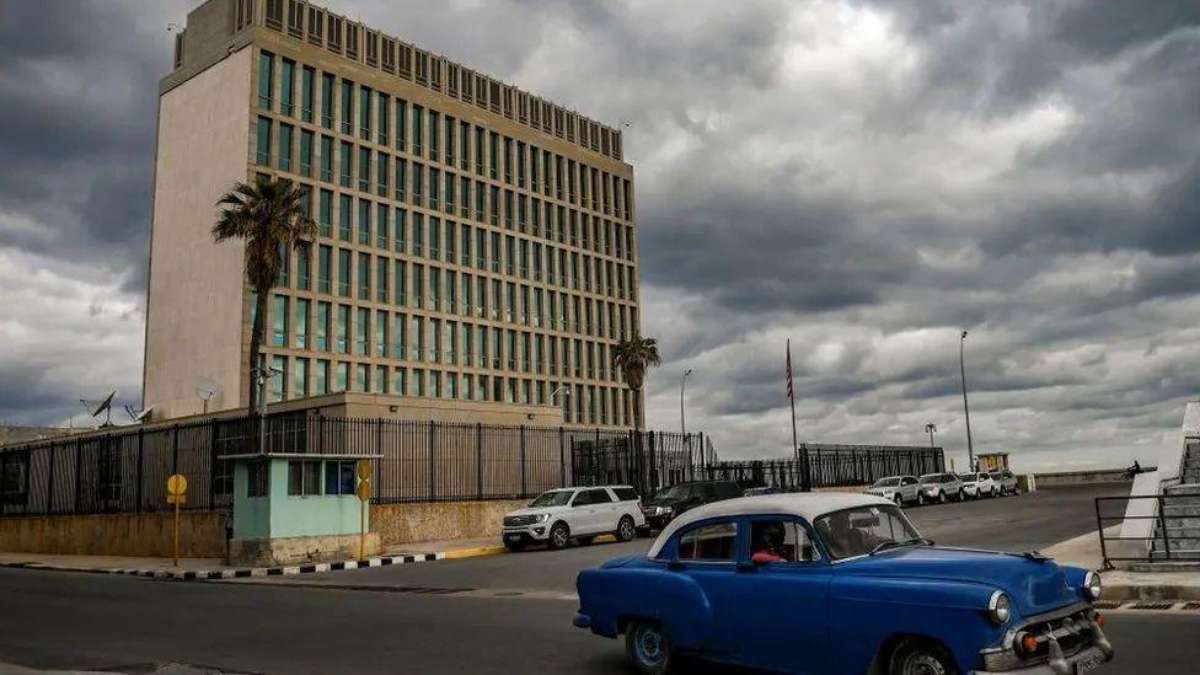
A Russian intelligence unit may be behind a mysterious illness that has afflicted American diplomats and agents in recent years, known as “Havana Syndrome.”
This is what a joint investigation conducted by the independent investigative website The Insider, the German magazine Der Spiegel, and the 60 Minutes program on the American CBS network indicates.
Since 2016, US employees residing in various parts of the world have reported unexplained symptoms such as dizziness, headaches and tinnitus. According to new media investigations, they may have been targeted with Russian sonic weapons.
Moscow denies these accusations. US officials have previously said that a foreign power is unlikely to bear responsibility.
But in their analysis of “anomalous health incidents” – submitted last year – they offered no alternative explanation, frustrating those affected.
They also acknowledged that there were varying levels of confidence in the assessment between the different intelligence agencies involved.
The name of the phenomenon refers to Cuba's capital, Havana – where the first case was detected in 2016 – although the new report suggests that the first cases may have occurred two years earlier, in Germany.
Americans afflicted with the disease — including officials from the White House, the CIA, the CIA, the FBI, and the US Federal Police — have complained of dizziness, headaches, difficulty concentrating, and severe, painful ringing in the ears.
More than 1,000 cases of the mysterious disease have been reported, and dozens of cases are still officially considered unexplained.
US lawmakers passed a law aimed at supporting victims, and people who are confirmed to have brain damage due to the disease are eligible for compensation.
It has long been suspected that those affected were exposed to direct microwave radiation released from hidden devices – a possibility that was identified by an earlier US intelligence report.
A new media investigation claims that agents from Russia's military intelligence unit – known as 29155 – may have blown the brains out of US diplomats with “directed energy” weapons.
The complaint says there is evidence of unit members being present in cities around the world at times when U.S. officials reported incidents.
As part of the investigation, Russia-focused website The Insider also reported that officers from Unit 29155 were rewarded for their work related to developing “non-lethal sonic weapons.”
US military investigator Greg Edgren, who analyzed cases of the syndrome, told 60 Minutes that the common link between the victims was a “connection to Russia.”
“There was a view that they worked against Russia, focused on Russia, and did a very good job.”
He also said that the official standard of evidence set by the United States to prove Russian involvement was set too high because his country did not want to “face some very difficult facts.”
Kremlin spokesman Dmitry Peskov denied that there was any evidence of Russia's involvement, and said that the accusations contained in the report were baseless.
An FBI agent who suffered from the syndrome told 60 Minutes about her experience when she was subjected to a strong force in her Florida home in 2021.
“Inside my right ear it was as if there was a dentist drilling into an asteroid,” she said. “That feeling when… [algo] Is it too close to the eardrum? It's like this, multiplied by 10.”
The client, known as Carrie, said she eventually blacked out and later experienced memory and concentration problems.
In response to the report, US officials told CBS News, the BBC's US partner, that they would “continue to closely examine anomalous health incidents” but reiterated their position that it was “unlikely that a foreign adversary was responsible.”
But they added that they “do not dispute the real experiences and symptoms reported by our colleagues and families,” noting that their work regarding such incidents was a priority.

“Proud explorer. Freelance social media expert. Problem solver. Gamer.”

:strip_icc()/s03.video.glbimg.com/x720/12789822.jpg)
:strip_icc()/i.s3.glbimg.com/v1/AUTH_59edd422c0c84a879bd37670ae4f538a/internal_photos/bs/2024/1/O/S6O6oKQwScXfbCIlfKag/000-364x8a3.jpg)
:strip_icc()/s04.video.glbimg.com/x720/12781543.jpg)


